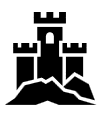History
History at DNA
“A people without the knowledge of their past history, origin and culture is like a tree without roots.”
Marcus Garvey
At Djanogly Northgate Academy, we believe that high-quality history lessons encourage critical thinking; enhance the ability to weigh evidence and generate arguments; develop chronological understanding and allow children to develop their sense of perspective. Our history curriculum is full of topics which foster awe and wonder and actively motivate children to ask ‘why’. Above all, we want our children to be passionate about history. At Djanogly Northgate Academy, we believe that high-quality history lessons encourage critical thinking; enhance the ability to weigh evidence and generate arguments; develop chronological understanding and allow children to develop their sense of perspective. Our history curriculum is full of topics which foster awe and wonder and actively motivate children to ask ‘why’. Above all, we want our children to be passionate about history.
Intent
At Northgate, our History Curriculum is underpinned by two key ideas: 'Think as a Historian', and a 'Big ideas'. We do this to make History come alive for our children, and so they can explore, discover and be inspired by key events in the past, and how it impacts their future.
Think as an Historian
History is the study of the past and can help to explain our present and our future.

Formulate arguments
Break away from binary thinking: reasoning using facts and evidence
Consequences
Can the actions of a person or group be positive and negative to others, or the wider world?

Threads are shared for you to pull
Musicians take the same notes and translate to different tunes like Historians. Being a historian is being a detective.
Cultural Capital
To allow our children to see a 'mirror' of themselves in history, but to also reflect the diverse cultural community of our school and surrounding area.

Gain historical perspective
Cultural, economic, military, political, religious and social history; and between short- and long-term timescales.
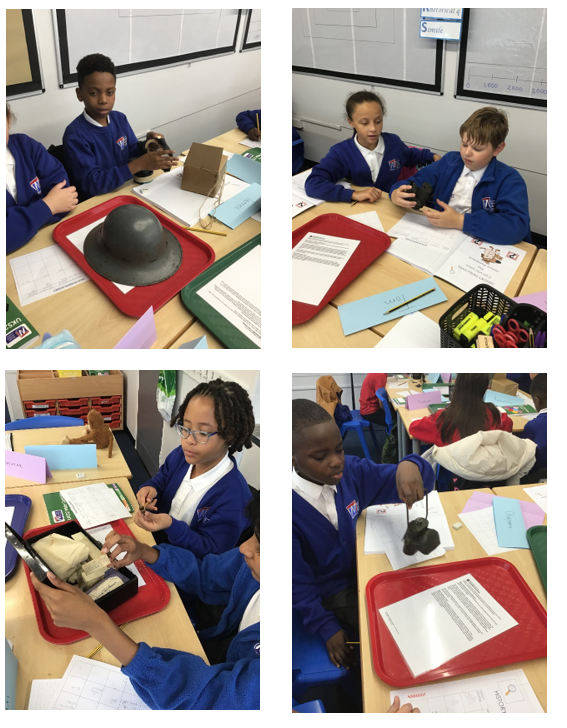
Photographs show year six children demonstrating the key concept of being a detective, and applying this to World War Two artifacts.
Big ideas
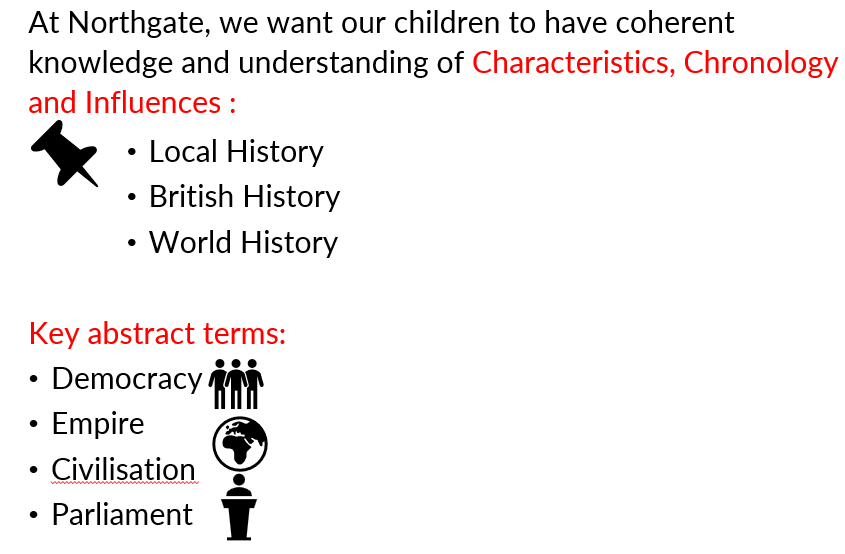
We also want them to have an understanding, and explore the key historical concepts that an actual historian would use.
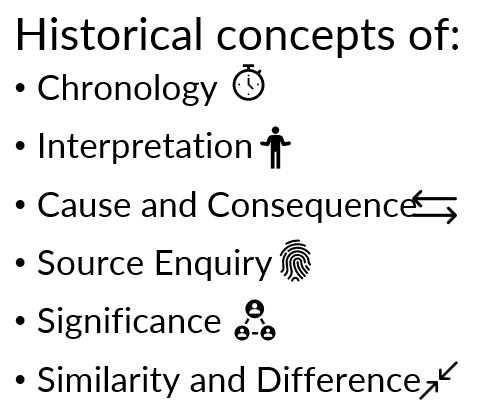
How History is taught at Northgate
It all starts with our key question-what foundational knowledge do we want our children to learn? From there, we create the key knowledge and vocabulary we want them to learn. Then, we ensure the topic links to prior learning, but also gives them a solid foundational understanding for their future learning.
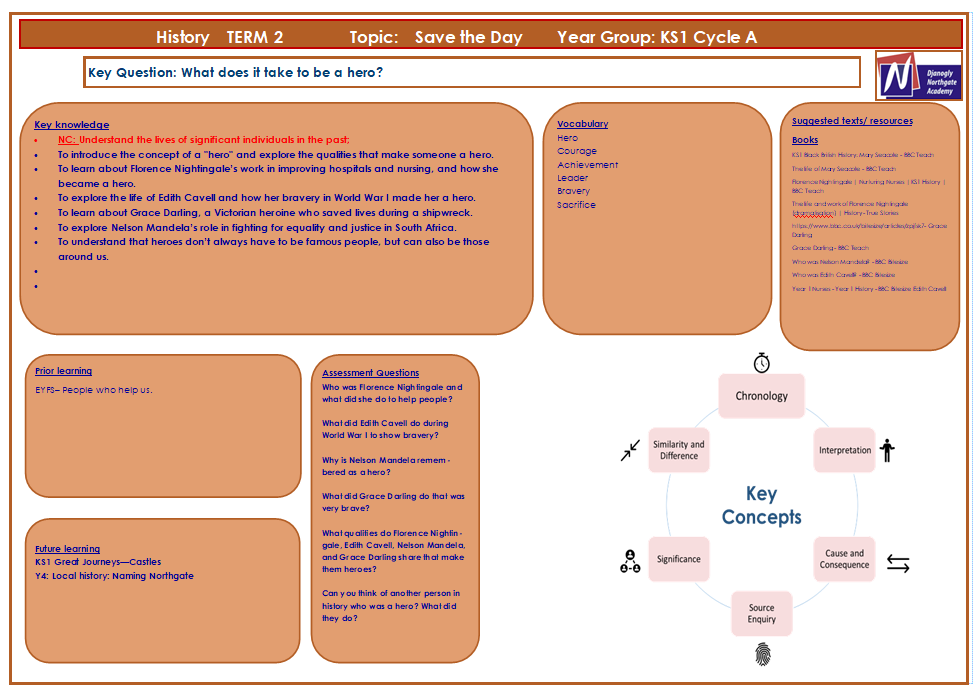
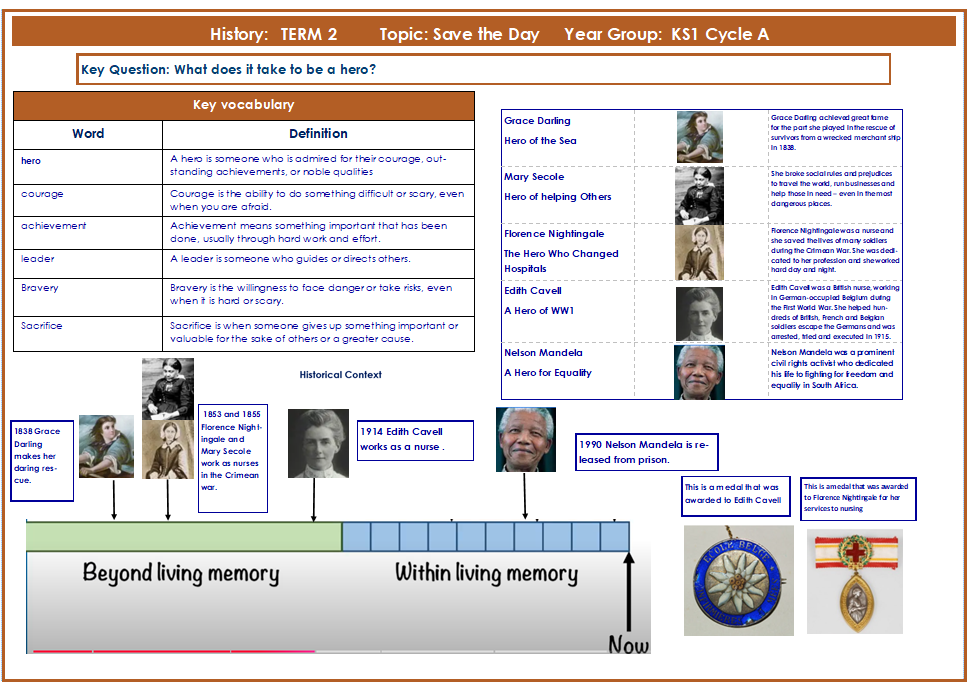
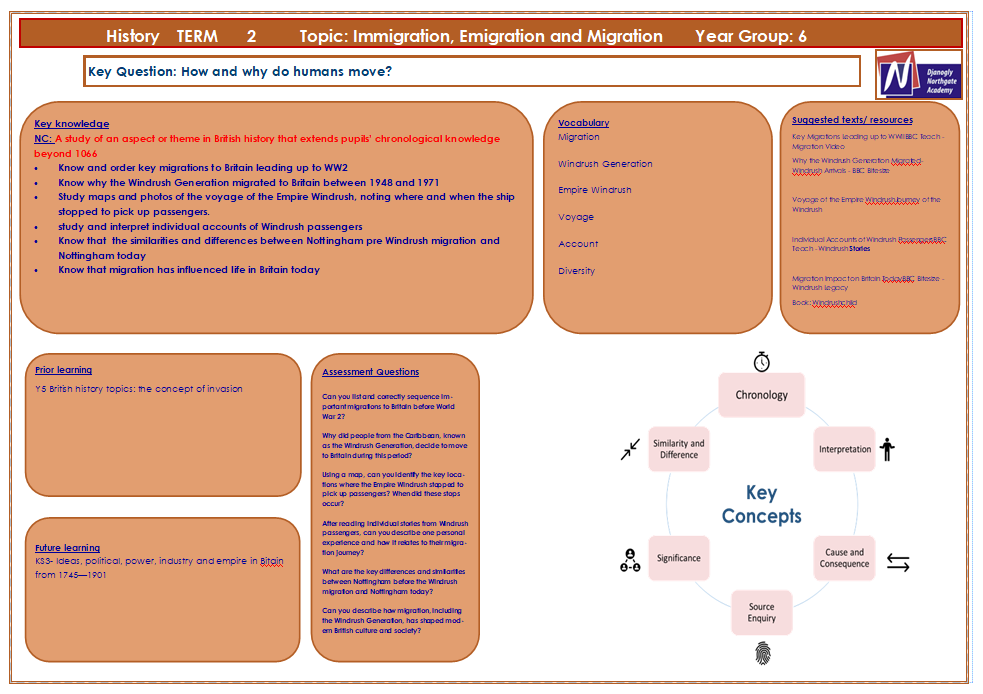
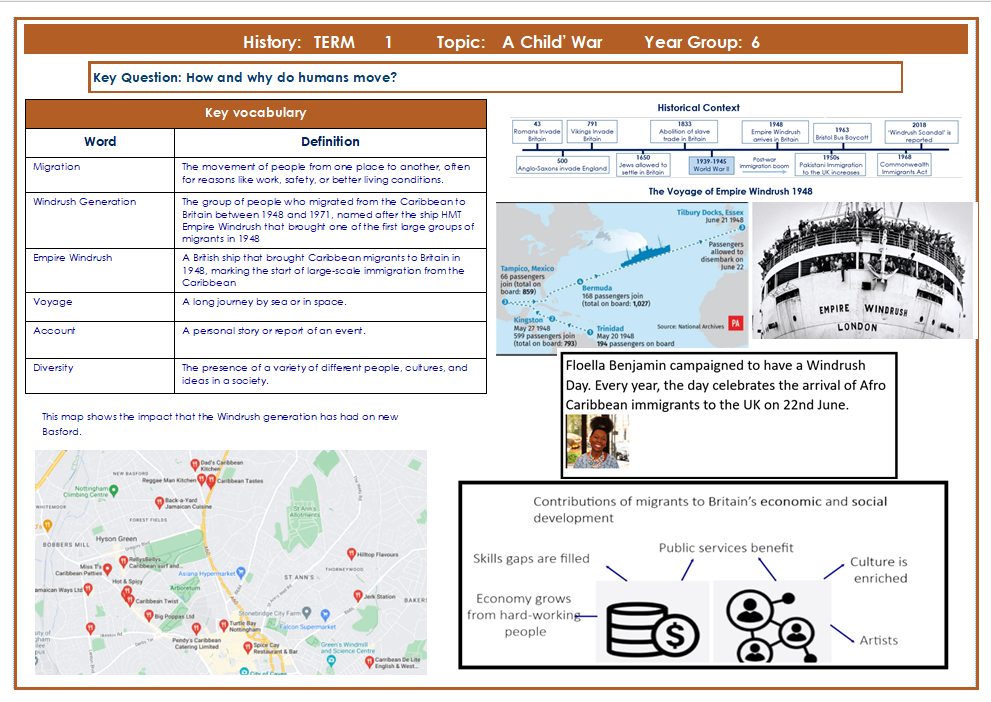
Impact
The impact of our history curriculum is rooted in the six key historical concepts, which are woven throughout the teaching and learning:
-
Chronological Understanding
Pupils learn to place events in time and understand the sequence and duration of significant periods. This helps them develop a strong sense of how the past fits together and influences the present. -
Cause and Consequence
Our curriculum encourages children to ask and answer questions about why events happened and what effects they had. This nurtures their ability to think critically about change and the complexity of human actions and motivations. -
Continuity and Change
By identifying what has changed and what has remained the same over time, children begin to see the long-term impacts of historical developments and how societies evolve. -
Similarity and Difference
Through comparisons between different people, places, and periods, pupils develop empathy and an appreciation for diversity, as well as the ability to spot patterns and contrasts in history. -
Historical Significance
Children learn to recognise and debate why certain people, events, and developments are considered important, helping them understand how history is constructed and remembered. -
Historical Interpretation
Pupils are encouraged to explore different sources of evidence and viewpoints. They learn that history can be interpreted in various ways, developing skills of analysis, judgement, and respectful discussion.
Our pupils leave each year with a deeper understanding of the world they live in. They are able to make connections between the past and present, understand the importance of key historical events and figures, and appreciate how history has shaped today’s society. They grow as critical thinkers, confident communicators, and responsible citizens who value evidence, perspective, and context.
Our history curriculum does not just teach children about the past — it equips them with the tools to make sense of the future.

